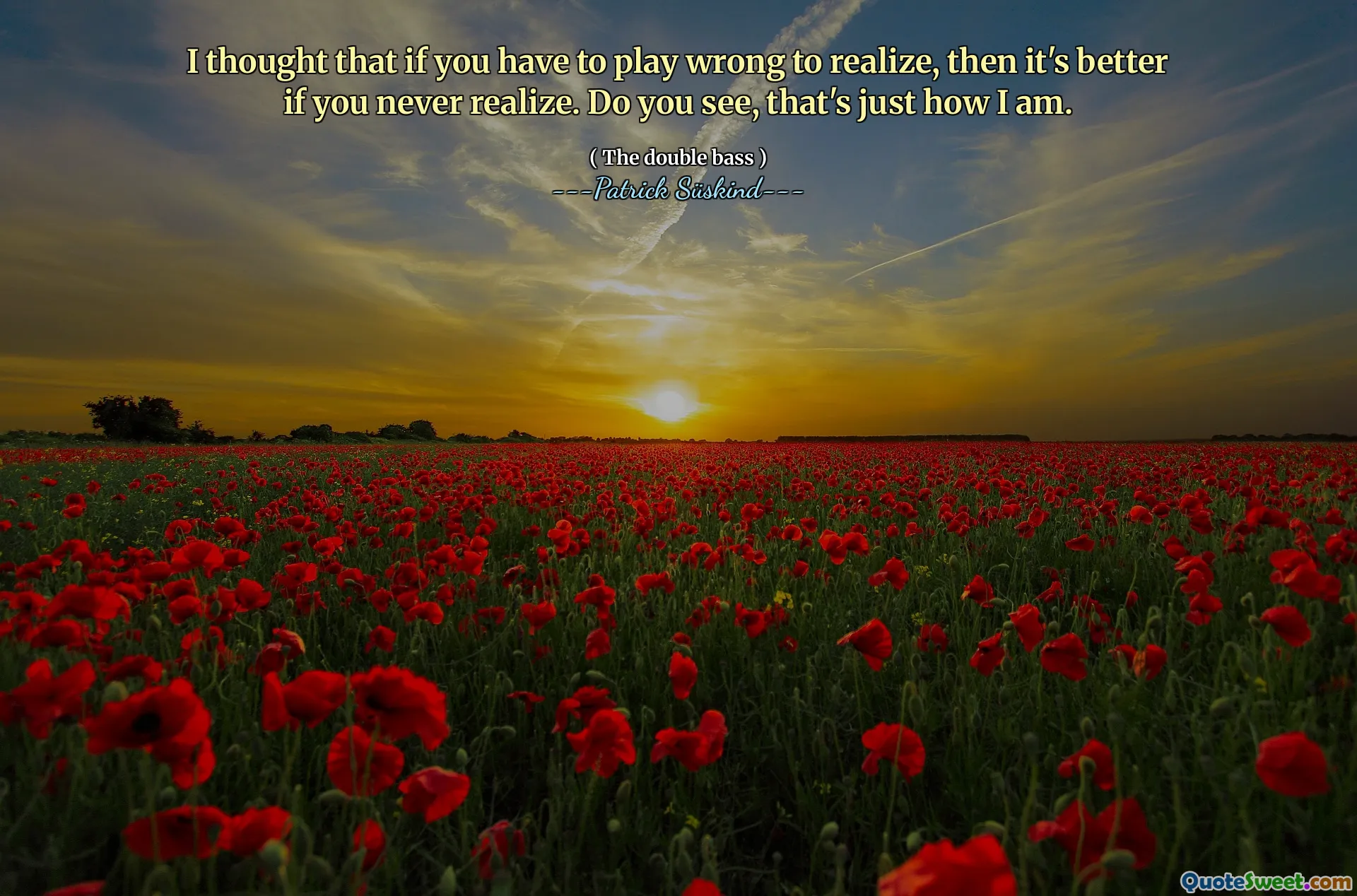
I thought that if you have to play wrong to realize, then it's better if you never realize. Do you see, that's just how I am.
[Markdown format]
This quote reflects a profound understanding of authenticity and the nature of perception. It suggests that sometimes, the effort to recognize or perceive something may be inherently flawed or manipulated, to the extent that acknowledgment itself becomes questionable. The speaker implies that if one must distort or act incorrectly just to notice or understand, perhaps it's better to remain unaware to preserve a sense of innocence or integrity.
From a philosophical perspective, this touches upon ideas of perception, reality, and truth. It underscores the notion that knowledge or enlightenment isn't always straightforward; sometimes, we may have to compromise or distort the truth to gain understanding. However, there's also an underlying sense of acceptance—recognizing that human perception is imperfect, and at times, it's preferable to accept this imperfection rather than chase a possibly illusory truth.
The statement evokes the delicate balance between authenticity and deception, urging us to reflect on when it's appropriate to question our perceptions and when to accept our limitations. It raises questions about the value of ignorance versus the pain or effort it might take to uncover the truth. Ultimately, it aligns with a contemplative mood, emphasizing that sometimes, ignorance might be bliss, especially when confronting uncomfortable realities.
In sum, this quote invites us to consider the nature of awareness and the complexities involved in truly understanding the world around us, acknowledging that sometimes, our way of perceiving or recognizing truths may involve a kind of necessary 'incorrectness.'
-- Book: (The Double Bass) -- Author: ---Patrick Süskind---






